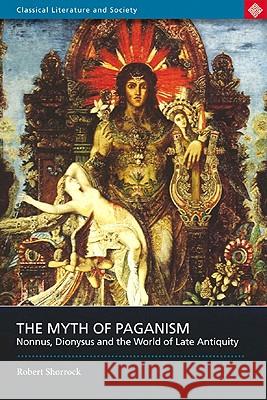The Myth of Paganism: Nonnus, Dionysus and the World of Late Antiquity » książka
The Myth of Paganism: Nonnus, Dionysus and the World of Late Antiquity
ISBN-13: 9780715636688 / Angielski / Miękka / 2011 / 192 str.
This challenging series considers Greek and Roman literature primarily in relation to genre and theme. It also aims to place writer and original addressee in their social context. The series will appeal to both scholar and student, and to anyone interested in our classical inheritance. With the adoption of Christianity as the official religion of the Roman world in the fourth century AD, the role of the poet underwent a radical transformation. In place of the traditional poet of the Muses, there emerged a new figure, claiming inspiration and authority from Christ. The poet of Christ soon came to eclipse the poet of the Muses, and in doing so established a conceptual framework that still drives modern approaches to the period: Christian poetry is taken 'seriously' as making a relevant and valuable contribution to our understanding of the late antique world; by contrast 'pagan' or 'secular' poetry is largely ignored, as though it were devoid of meaning. "The Myth of Paganism" seeks to re-evaluate the role of 'pagan' poetry in late antiquity.Instead of maintaining a strict dichotomy between 'pagan' and 'Christian', it presents a broader definition of these poets as active participants and collaborators in the creation of late antique culture. Attention focuses on an exploration of the contemporary resonance of Nonnus' Dionysiaca - traditionally regarded as a 'pagan' epic in terms of its theme and content, yet in all probability the work of a 'Christian' poet responsible for a Homeric-style retelling of St John's Gospel.











